![]() The information provided by our expert should not constitute a diagnosis of your condition. Always consult a medical practitioner or healthcare provider for a formal diagnosis. By making use of this content, you agree that ConceiveEasy and the expert assume no liability.
The information provided by our expert should not constitute a diagnosis of your condition. Always consult a medical practitioner or healthcare provider for a formal diagnosis. By making use of this content, you agree that ConceiveEasy and the expert assume no liability.
If you have been diagnosed with endometriosis, you may be worried, understandably so about how your fertility may be impacted.
That is a valid concern because endometriosis can have a negative impact on your ability to conceive. But the good news is that with intervention, achieving a healthy and successful pregnancy is achievable with endometriosis. Claim Your 20 Free Pregnancy Tests – Click Here

Whenever you get your period, you are shedding the lining that is in your uterus because a pregnancy did not happen. That lining inside your womb is called the endometrium. However, occasionally that uterine lining or the endometrium ends up growing outside of the uterus and attaches itself to the exterior of the womb.

It can also grow on the ovaries, fallopian tubes as well as in the abdomen, and it is an extremely painful condition. The pain is worse during intercourse, during ovulation and most definitely during menstruation.
There can also be pain associated with urination and bowel movements. Occasionally, other symptoms like bloating, diarrhea, constipation, fatigue, and nausea can be experienced as well. However, endometriosis can range in severity, and so can the pain.
However, mild endometriosis can still be painful due to where the endometrium is growing whereas in some cases, severe endometriosis can present itself with very little pain. It all depends on the situation, and where the lining has attached itself.

There can be several causes of endometriosis. Let’s look at these right here:
Surgical scarring – If you have had surgery that involved your womb like a C- section, the endometrial cells may end up attaching itself to the surgical wound.
Retrograde menstruation – Occasionally, during menstruation, the blood that contains the endometrial cells can flow back through the fallopian tubes and inside of the pelvic cavity.
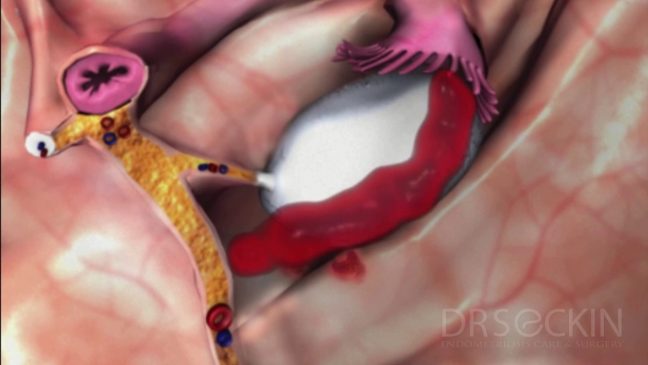
As a result, these cells end up sticking the pelvic area and end up growing, thickening and bleeding during each menstrual cycle. That is incredibly painful.
Endometrial cell transport – Endometrial cells may be transported through the lymphatic system to other parts of the body.
Immune system condition – Sometimes the immune system may cause the body not to recognize and destroy the endometrial tissue that is growing outside of the womb. Therefore, that is why the growth and development of the tissue continues.
Embryonic cell transformation – During the embryonic stage, sometimes hormones like estrogen may change these cells in the earliest stage of development into endometrial cell implants during the time puberty starts.
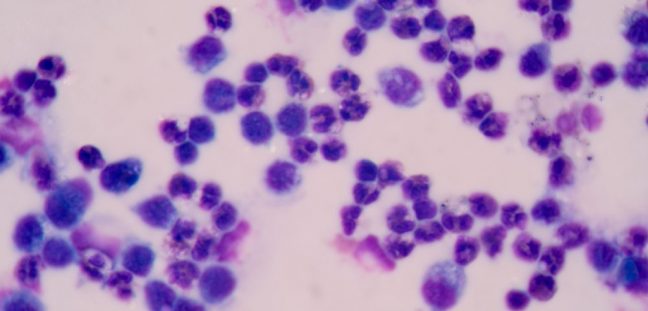
The peritoneal cells transform – It has been said that the immune factors or hormones can change the cells that are inside of your abdomen which are called the peritoneal cells into endometrial cells. This is known as the induction theory.
Genetics – If your mom, aunt, grandmothers on your mother’s or father’s side had endometriosis, then there is a higher chance that you will too.

The one way that endometriosis can be diagnosed is through an invasive diagnostic laparoscopic surgery. That is the only way to make a definite diagnosis. It will not be arranged unless the woman has been complaining about having symptoms that are associated with endometriosis.
Since you know what the causes of the condition are, and if you do have endometriosis, then it was a result of one of these issues listed above.
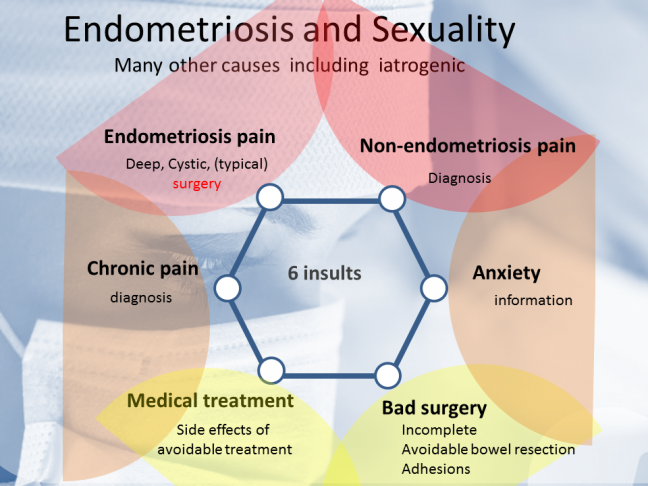
Now let’s find out how likely you will be able to conceive if you have endometriosis, and what kind of interventions to expect if they are needed. And by the way, it is also possible to conceive naturally if you have the condition- under certain conditions, and let’s take a look at those:

The following factors can affect whether or not you will be able to likely conceive naturally with endometriosis:
Your age – If you are under 35, you have a much better chance of conceiving on your own! Once you reach 35, the odds of conceiving naturally drop – and that includes women who do not have endometriosis.
Your partner’s fertility – If your partner has a healthy sperm count, motility, and quality, then your odds of conceiving on your own are higher.
The severity of your endometriosis – If your endometriosis is mild, your odds of conceiving are higher than those who have the condition that is more moderate to severe.
However, this is not always the case, as it has been found that many couples who have experienced unexplained infertility were due to the fact that the woman had mild endometriosis.
However, it is important to address that the severity of pain does not indicate whether or not you can conceive. That is because the amount of pain you experience is not always related to the endometriosis itself.
The pain can be associated with severe endometriosis, but not always. It really depends on the area of your body where the endometriosis is most affecting.
Therefore, if you are in a lot of pain, that is not an indication of how difficult it will be for you to conceive. On the flip side, if you have very little pain, that also does not mean that you will have an easy time getting pregnant. There are so many factors to consider.

The answer to that question is yes, you should. Especially if you are under 35 years of age. If you are over 35 and pregnancy has not been achieved, then you need to seek out fertility help by 6 months of trying.
However, many women who did receive the diagnosis of endometriosis may start to look into fertility treatments. In many cases, women who have had surgery to remove the endometrial tissue and cysts do successfully conceive on their own after.
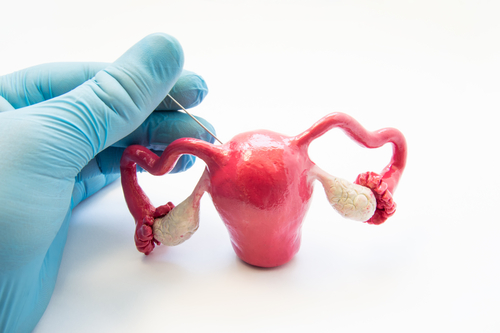
Therefore, surgery can be an option if you want to attempt to get pregnant naturally. However, there is a risk of surgery which is creating more scar tissue. even though it is laparoscopic. The scar tissue will worsen infertility and end up causing more pain! That would definitely defeat the purpose.
However, more often than not, many women with endometriosis end up going right to in vitro fertilization to conceive. Before that is discussed further, let’s find out why it is difficult to conceive with endometriosis:

There are many reasons why conceiving naturally is difficult with endometriosis. There are a number of reasons for this issue.
Blockages of fallopian tubes and other organs – Because of the fact that endometrial lesions cause scarring, it creates not only blockages in the tubes which prevents the egg and sperm reaching one another, and in the other organs – but it distorts them as well.
Endometriosis can also cause ovarian cysts which can also get in the way when it comes to ovulation. Even if there are no blockages or cysts due to endometriosis, women who have the condition will still have fertility issues.
Implantation issues – Even though endometriosis causes the lining to grow outside of the uterus, it also reduces the quality of the lining that is inside. Therefore, if the lining is not up to par, that will affect implantation of the embryo.
It is quite common for chemical pregnancies to happen when endometriosis is involved. That is a pregnancy that ended in a miscarriage before 5 weeks, which means the embryo ended up becoming lost during menstruation due to the fact that it could not implant.
Women who have chemical pregnancies are not aware of this fact due to the loss happening early on.
Decreased egg quality – It is common for women who have endometriosis to have eggs that are not of the best quality due to the fact that the egg develops slower than average and ends up being released when the follicle is smaller than average.
It has also been found that egg donors that have endometriosis due produce lower quality eggs and end up producing lower quality embryos that are slow to develop and that don’t implant properly.
This is why many couples end up opting for IVF whenever endometriosis is involved. However, that is not where couples affected by the condition are told to begin. Let’s look at what fertility options couples where endometriosis is an issue have:

Even though IVF is the best treatment option for couples affected by endometriosis, it is not the starting point for many couples.
The fact of the matter is that IVF is costly and extremely invasive. Because there is always a chance that conception can happen with the other methods that are less expensive and less invasive than IVF.
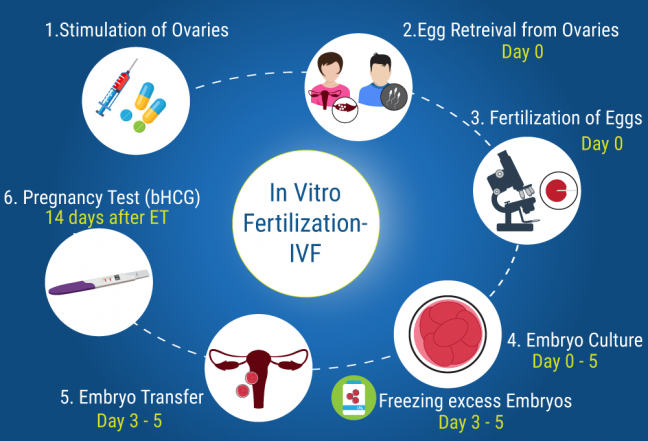
That also depends on your age, your partner’s sperm count, quality and mobility and the severity of your endometriosis. The only time that IVF would be your only option is if your fallopian tubes are blocked, the endometriosis is severe, and/or if your partner has a severely low sperm count and poor quality overall.
However, for women who have mild to moderate endometriosis, and who have partners that have enough sperm to work with even if the count and quality are on the lower end- the first step taken is attempting conception through intrauterine insemination (IUI).
IUI is less invasive and less costly than IVF, and successful pregnancies have occurred through this method when endometriosis has been involved. The woman would go on Clomid or on gonadotropins in order to properly time ovulation so the insemination can be done at the best time in the cycle when the odds of conception is high.
Women that have endometriosis that is attempting to get pregnant with IUI and fertility drugs can also help their odds of conceiving as well by eating foods that will help improve hormonal levels which will help their quality of eggs.

Unfortunately, there has not been enough research conducted to see if there are foods that will help reduce the severity of endometriosis. However, women that are attempting to conceive who have the condition whether they are trying to achieve a pregnancy through IUI or naturally can eat foods that can help their overall fertility increase.
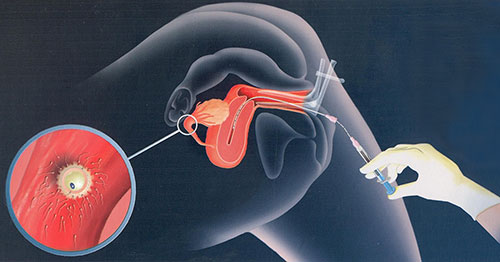
The best foods they can eat would be full of Omega 3 fatty acids which can help improve hormonal levels to increase the chances of a successful conception. These foods are:
• Salmon
• Oysters
• Spinach
• Mackerel
• Walnuts
• Flaxseeds
• Chia seeds
• Fish oils
Other important foods to add to the diet are foods that are high in antioxidants. In fact, it has been found that oxidative stress can worsen the effects of endometriosis. Oxidative stress can also cause cell damage, aging, and that can also be responsible for poor egg quality in women who have endometriosis.
That is why it is important for women who have the condition include many foods that are high in antioxidants in their diets as well. These foods are:
• Eggs
• Avocados
• Sweet potatoes
• Liver
• Carrots
• Black-eyes peas
• Berries
• Mangoes
• Peppers
• Cantaloupe
• Oranges
• Almonds
• Sunflower seeds
• Wheat germ
It is also important for women who have the condition to consume high-fat dairy products such as whole milk, full-fat cheese, and yogurt to help increase their overall fertility. Magnesium is also crucial for women with endometriosis since magnesium levels drop naturally during pregnancy.
Therefore, it is even more crucial that they consume foods that are high in magnesium such as cashews, peanuts, black beans and whole grain bread, whole grain cereal and oatmeal.
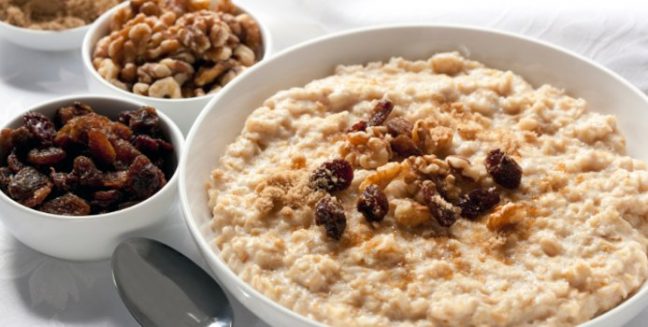
The foods to strictly limit are white bread, white pasta, candy, potato chips, fast food and pastries as that is full of refined carbohydrates as well as trans fats. That has a negative impact on any woman trying to conceive, and it is even worse when endometriosis is involved!
If you stick to those foods while either attempting to conceive naturally or through IUI, even with fertility drugs, you will have a higher chance of achieving a healthy pregnancy!
Therefore, to sum up, it is definitely possible to conceive while having endometriosis. However, that depends on the severity of the condition and the method of conception- and how well you take care of your health!
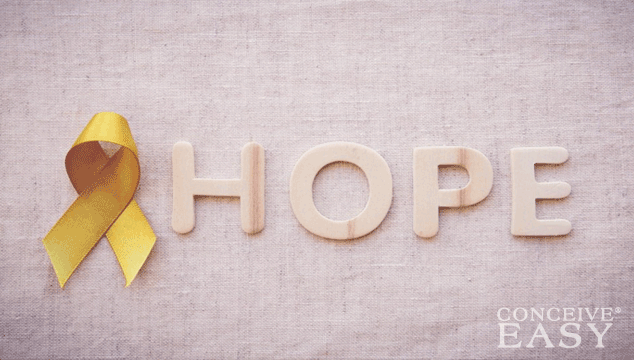









Comments